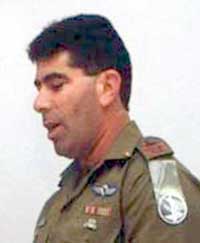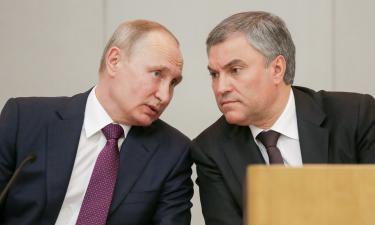Army chief says Israel may have to confront Hezbollah attempts to re-arm
Israel's new army chief said Wednesday that Israel may have to confront Hezbollah to halt the guerrilla group's attempts to rearm after last summer's war in Lebanon.

Lt. Gen. Gabi Ashkenazi said Israel delivered a tough blow to Hezbollah during the 34-day war, but the group, and its leader, Hassan Nasrallah, are rapidly trying to refortify the militia.
"I think we all understand that ... he (Nasrallah) is not able to do the things that he could do before," Ashkenazi told reporters. "We see here and there smuggling and other things to bring weapons," he said. "We are following this and we apparently have to deal with this."
He spoke while observing a military exercise on the Golan Heights, a strategic plateau near the Syrian and Lebanese borders captured by Israel in the 1967 Mideast War.
Israeli officials have expressed concern recently that United Nations forces deployed in Lebanon as part of the Aug. 14 cease-fire that ended the war have not stopped Syria from continuing to transfer weapons across its border with Lebanon to Hezbollah.
"The United Nations has to stop the weapons smuggling to Hezbollah and in our opinion they have not done enough," Vice Premier Shimon Peres told the Yediot Ahronot newspaper this week during a tour along the border with Lebanon.
Syria is Hezbollah's closest ally, and the U.N.-brokered cease-fire banned unauthorized weapons shipments to Hezbollah.
Hezbollah currently possesses more than 10,000 short-range rockets, down from between 12,000 and 14,000 before the war, according to estimates of Israeli intelligence, Yediot reported. Weapons are constantly coming across the border from Syria, the daily said.
Attending Wednesday's military exercise, Defense Minister Amir Peretz said Israel was trying to avoid a further confrontation with Hezbollah.
"There's no doubt that this exercise ... doesn't demonstrate any intention to get involved in any confrontation or friction," Peretz said.
Peretz, Prime Minister Ehud Olmert and Ashkenazi's predecessor, Lt. Gen. Dan Halutz, have been heavily criticized in Israel for their management of last year's war. Israel launched the war in response to a cross-border raid by Hezbollah that killed three Israeli soldiers and captured two others, reports AP.
Israel failed to reach its two main objectives destroying Hezbollah and returning the captured soldiers. Reserve soldiers returning from the battlefield also complained of poor preparations, confused orders and lack of food, water and ammunition.
Halutz resigned last month in light of the criticism and Ashkenazi took his place last week. A commission investigating the war has yet to present its findings.
Olmert was called before the commission to testify earlier this month, the last witness following a parade of top Cabinet ministers and military officers.
Subscribe to Pravda.Ru Telegram channel, Facebook, RSS!





